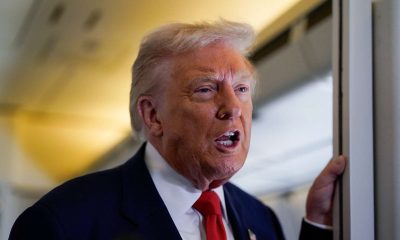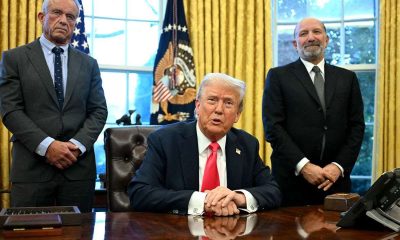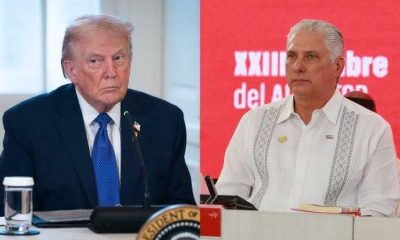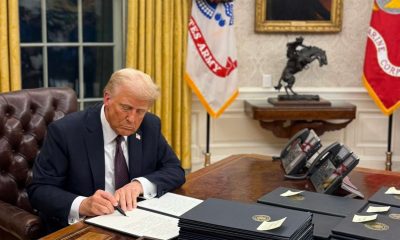Business
Nigeria excluded as Trump invites five African leaders to Washington for trade talks

Former U.S. President Donald Trump is set to host leaders from five African countries at the White House next week for discussions focused on trade and investment opportunities – with Nigeria conspicuously absent from the invite list.
According to a White House official, the participating countries include Gabon, Guinea-Bissau, Liberia, Mauritania, and Senegal. The meeting, scheduled for July 9, will feature a formal discussion followed by a luncheon with Trump.
“President Trump believes that African countries offer incredible commercial opportunities that benefit both the American people and our African partners,” the official said, underscoring the rationale behind the gathering.
The summit, which will run from July 9 to 11 in Washington, was first reported by Africa Intelligence and Semafor. It is part of Trump’s renewed efforts to reshape U.S.-Africa relations around trade, private investment, and mutual economic benefit, in contrast to traditional aid-driven diplomacy.
Since returning to the political spotlight, Trump has maintained a critical stance on foreign aid, especially to Africa, which he argues has been wasteful and misaligned with his “America First” agenda. His administration previously slashed significant portions of U.S. development assistance to the continent, pivoting instead toward commercially driven partnerships.
Reinforcing this new strategy, U.S. Secretary of State Marco Rubio on Tuesday declared an end to what he described as a “charity-based” aid model, pledging support only to nations that demonstrate “both the ability and willingness to help themselves.”
Similarly, senior U.S. officials have hinted at a performance-based diplomatic approach. In May, Troy Fitrell, head of the Bureau of African Affairs, stated that American ambassadors across Africa would now be evaluated based on the number of commercial deals they help secure.
Analysts say Nigeria’s exclusion from the summit is striking, given its status as Africa’s largest economy and one of the continent’s top U.S. trade partners. It is unclear whether the omission was deliberate or a reflection of broader shifts in Trump’s Africa policy.
Critics warn that the shift away from developmental assistance could leave vulnerable nations behind, while proponents argue it will encourage African governments to pursue more sustainable and self-driven growth.












